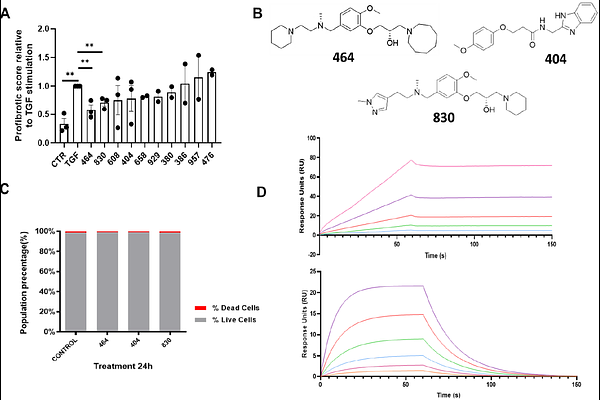Targeting Tenascin-C-Toll-like Receptor 4 signalling with Adhiron-derived small molecules - a viable strategy for reducing fibrosis in Systemic Sclerosis

Targeting Tenascin-C-Toll-like Receptor 4 signalling with Adhiron-derived small molecules - a viable strategy for reducing fibrosis in Systemic Sclerosis
Gaule, T.; Simmons, K. J.; Walker, K.; Del Galdo, F.; Ross, R. L.; Viswambharan, H.; Krishnappa, J.; Pacey, J.; McPhillie, M.; Tomlinson, D. C.; Maqbool, A.
AbstractTissue fibrosis is a hallmark of systemic sclerosis (SSc) and results from the excessive production and deposition of collagen and other extracellular matrix proteins by resident fibroblasts. This excessive connective tissue accumulation leads to tissue disruption and subsequent dysfunction in the skin, lungs and other internal organs. Recent studies highlight a role for the matricellular protein Tenascin C in SSc, whereby its stimulation of Toll-like receptor 4 triggers self-sustaining fibroblast activation and ensuing fibrosis. We have utilised Adhiron guided ligand discovery to generate small molecules that target the fibrinogen-like globe domain of Tenascin C, a region involved in Toll-like receptor 4 activation and have demonstrated a reduction in the profibrotic phenotype of human dermal fibroblasts. These studies may facilitate the development of effective targeted therapy for fibrosis in SSc and other fibrotic diseases. Moreover, it highlights the utility of Adhiron guided ligand discovery to generate small molecule inhibitors to selectively modulate proteins.